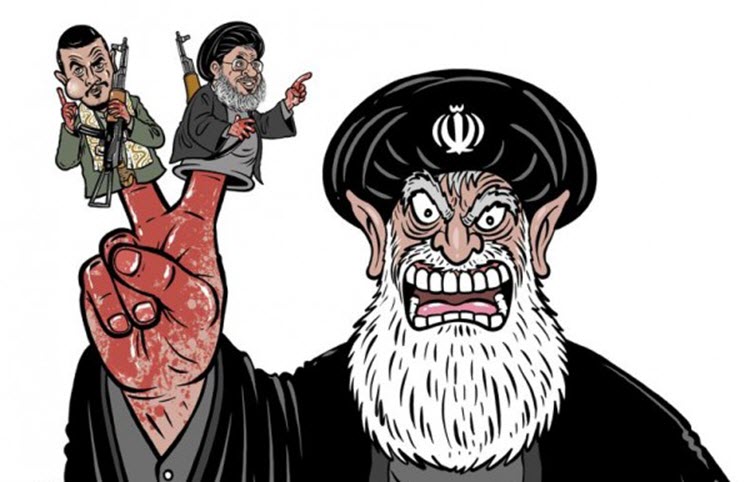

An article on groundreport.com presents suggestions on how the Iranian regime’s terrorism can be combatted, a hot topic following the U.S. presidential debate between Clinton and Trump. The nuclear deal and the trouble caused by Iranian boats in the Persian Gulf was discussed, however the main problem – the violation of human rights – was not mentioned by either candidate. Once again, in a repetition of the last 38 years, the “egregious” violation of human rights has been ignored.
The author of the article points out that Iran’s foreign policy is based on support for terrorism which has led to war and turmoil in Syria, Yemen and Iraq. It has also created instability across the Middle East. “The policy of aggression outside the country has a direct link to Tehran’s domestic policies and the way it treats the people of Iran. This policy was adopted by Ayatollah Khomeini, the founder of Islamic Republic, under the guise of export of Revolution.”
Khomeini founded the theocratic regime in 1979. It had a “reactionary and backward school of thought” despite the reasonably well-educated and modern Iranian people. The regime could not resolve the 20th century problems which created discontent in society, especially amount the youth who called for major change.
Unable to respond to the needs of society, the regime resorted to supressing the people and “in order to justify and cover up this authoritarianism, they adopted the policy of ‘exporting revolution’, or more precisely, sponsoring terrorism and waging war in other countries.” So the wars abroad deflect from the internal suppression. Even senior officials of the regime and the Iranian Revolutionary Guards Corps (IRGC) have said that their survival depends on this.
During the 1980s the regime dealt with opposition through prison, torture and execution. The People’s Mujahedin Organization of Iran (PMOI or Mek) were one of the main victims, and in 1988 anyone they found to be loyal to the PMOI was killed following a decree from Khomeini. This resulted in the deaths of around 30,000 people.
The West has turned a blind eye to the atrocities carried out by the regime. Even faced with new information about the 1988 killings in which an audio recording shed light on what really happened and who was involved.
“To contain Iran and its terrorism abroad, it is imperative to hold them accountable for what they have done and what they are doing inside Iran. Therefore the right policy towards Iran is not to turn blind eye to those crimes but to make the regime pay for all the crimes they have committed. The UN should form an international tribunal to bring to justice all the decision makers, and perpetrators of the 1988 massacre, who are still in key positions in the Iranian regime. It is also imperative to impose sanctions on Iran because of its violation of Human Rights, and any economic and political relation with Iran must be conditioned to complete halt of executions and torture in that country.”







